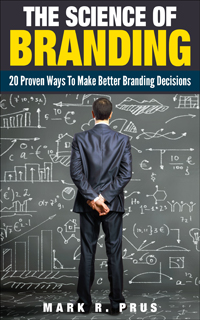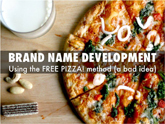Science Says Odd Spelling Can Be Bad Branding

Startups have a bad habit of using intentionally misspelled names. This is not a new trend, but the fact that it continues shows their ignorance of the science of branding. Crunchbase looked at names of recently founded startups and showed that founders are still using offbeat spelling in their company names (https://news.crunchbase.com/startups/offbeat-misspelled-names-ai-skild-lyft/).
A 2023 study at The Ohio State University (https://news.osu.edu/unconventional-spellings-are-a-badd-choyce-for-brand-names/) showed that deliberate misspelling of a brand name was almost always a bad idea. One example used the name Clear and Klear for a seltzer, and Clear was overwhelmingly preferred. Researchers concluded that “Results showed that participants thought the unconventional spelling was a gimmick or marketing tactic designed to make the brand seem cool or trendy. They also thought it made the brand seem less sincere – less honest, down-to-earth and wholesome.”
There were exceptions though. The researchers found that deliberately misspelling words can work in some limited cases, such as when the reason for selecting the name is seen as sincere, or when consumers are seeking a memorable experience. In one study, the researchers found that a bar called “Xtra Chilld Lounge” did appeal to consumers looking for a fun, memorable evening.
In my experience, when you use intentionally misspelled names, you create a “mind puzzle” with your branding. Consumer reaction to the mind puzzle ranges from “rejection to acceptance to confusion.” If your misspelling is seen as trivial (such as Klear versus Clear), then the consumers seem to reject it. If your misspelling is clever (but not confusing), the customer will often spend time trying to figure out why the name was chosen, which can lead to higher recall of the name later and positive attributions to the product. The consumer might enjoy the mind puzzle if they don’t have to work too hard to get your point. When consumers solve the puzzle, they will then have a sense of accomplishment because they were able to figure it out. However, when you go too far, consumers may just get frustrated and confused and move on. Finding the sweet spot of intentional misspelling is not easy!
The lesson here is that intentional misspelling is not necessarily a good or a bad thing, but what is important is how the target customer relates to the name and the product itself. Misspelling for the sake of misspelling (or domain acquisition) can be bad, but if the name makes the target customer curious about a product and willing to investigate it further, then misspelling can be good.



